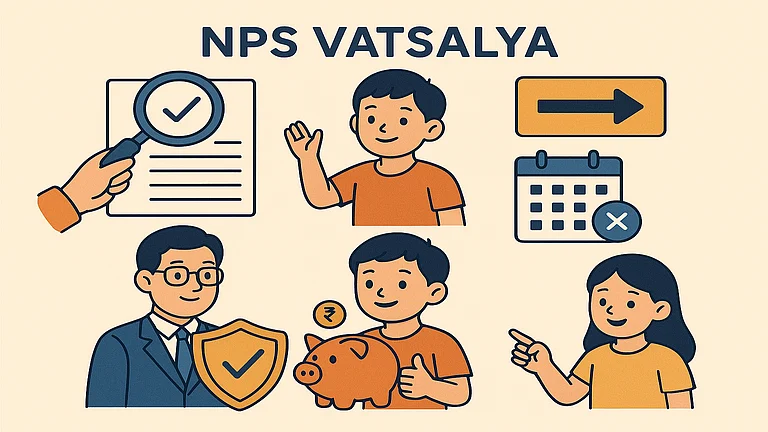The Haryana government has adopted the Unified Pension Scheme (UPS) notified by the Centre under the National Pension System (NPS). Effective from August 1, 2025, this landmark move will benefit over 2 lakh state government employees appointed on or after January 1, 2006, an official statement said here after a decision to this effect was taken by the state cabinet. The cabinet met here on Thursday under the chairmanship of Chief Minister Nayab Singh Saini.
The scheme, approved by the state Cabinet, aims to give assured minimum pension and family pension to government employees.
The Unified Pension Scheme (UPS) will provide 50 per cent of the average basic pay drawn by a state government employee during the 12 months prior to retirement, provided the employee completes 25 years of service.
A minimum guaranteed payout of Rs 10,000 per month will be assured if the employee retires after completing 10 or more years of qualifying service. In the event of the pensioner's death, the family will receive 60 per cent of the last-drawn pension amount.
Dearness relief (DR) will be applicable on both the assured pension payout and the family pension, calculated in the same manner as the dearness allowance (DA) applicable to serving employees. However, dearness relief will be payable only once the pension payout commences.
A lump sum payment will also be allowed at the time of superannuation, amounting to 10 per cent of the monthly emoluments (basic pay + DA) for every completed six months of qualifying service. This lump sum will not affect the assured pension payout, the statement said.
Under the current National Pension System (NPS), employees contribute 10 per cent, while the state government contributes 14 per cent.
With the implementation of UPS, the government contribution will increase to 18.5 per cent, resulting in a monthly expenditure of approximately Rs 50 crore and an annual cost of Rs 600 crore.
The corpus under the Unified Pension Scheme will consist of two funds: an individual corpus comprising employee contributions and matching contributions from the government of Haryana, and a pool corpus funded by additional contributions from the government of Haryana.
Employees will contribute 10 per cent of their (basic pay + DA), with an equal contribution from the Haryana government. Both amounts will be credited to each employee's individual corpus.
In addition, the Haryana government will contribute an estimated 8.5 per cent of (basic pay + DA) of all employees opting for the UPS to the pool corpus on an aggregate basis. This additional contribution is intended to support the assured payouts under the scheme.
Employees may exercise investment choices for their individual corpus, which will be regulated by the Pension Fund Regulatory and Development Authority (PFRDA). If an employee does not specify an investment preference, a 'default pattern' of investment, as defined by PFRDA, will apply.
Investment decisions for the pool corpus, funded by the additional government contribution, will be managed solely by the Haryana government.
For employees who retired before the UPS became operational and opt for the UPS, the PFRDA will determine the mechanism for providing the top-up amount.
Existing employees of Haryana government under the National Pension System, as well as future employees, will have the option to choose either the Unified Pension Scheme under the NPS or to continue with the existing NPS without the UPS option.
Once an employee opts for the UPS, all terms and conditions of the scheme will be deemed accepted, and this choice will be final.
The decision regarding implementation of UPS in Boards/Corporations, PSUs, State Universities will be taken later on separately, the statement said.


















